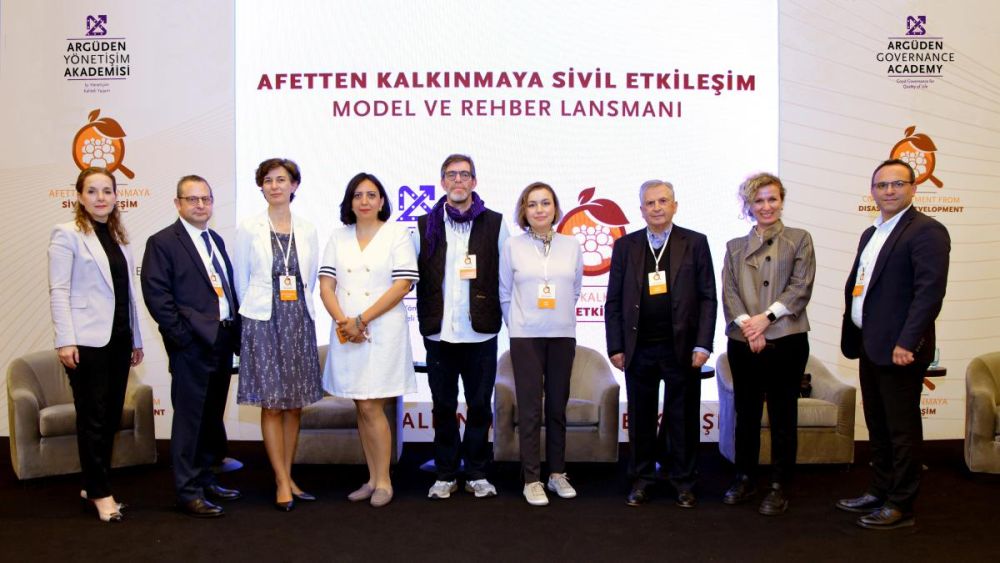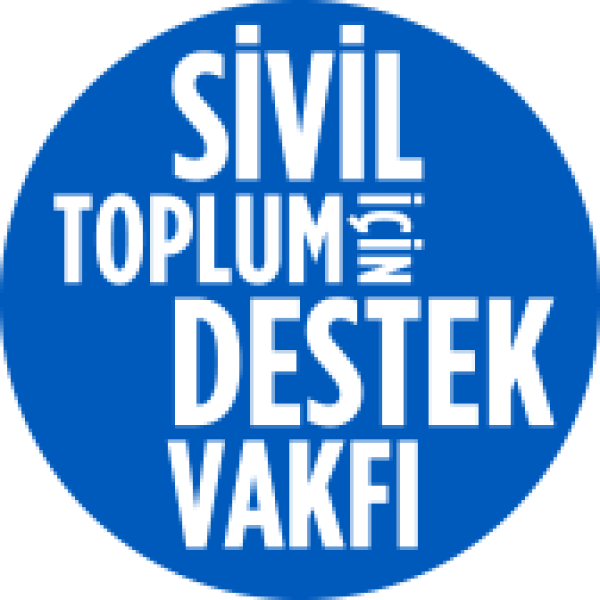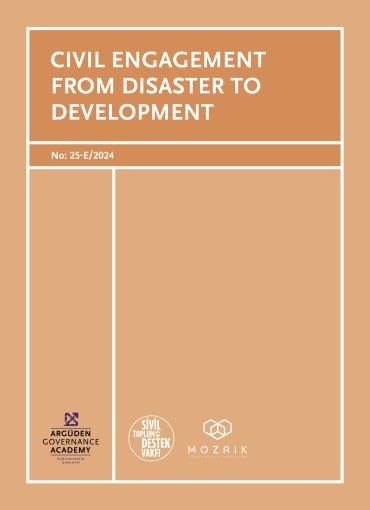Argüden Governance Academy, a non-profit foundation dedicated to improve the quality of governance across the public, non-profit, private, and international organizations, has unveiled the Civil Engagement Evaluation Model©, which focuses on good governance in pre- and post- disaster decision-making and implementation processes. The model, developed within the framework of the “Civil Engagement from Disaster to Development” project, was introduced during the meeting held in İstanbul on Thursday, 9 May drawing participation from representatives from public institutions, NGOs, and academia.
The project supported by the Kahramanmaraş Earthquake Direct Support Fund endeavors to promote sustainable development and quality of life by integrating principles of good governance into the reconstruction efforts of 11 provinces affected by disasters. This fund was established through a collaboration between the Support Foundation for Civil Society and the Turkey Mozaik Foundation.
The project aims to improve civil engagement quality in participatory governance processes, in line with good governance culture. Developed with the understanding of "You cannot improve what you do not measure", the Civil Engagement Evaluation Model© aims to facilitate the effective implementation of an inclusive and meaningful civil participation approach in all decision-making and implementation of pre- and post-disaster processes.
“How” is it possible to improve civil engagement in post-disaster development and reconstruction processes?
Dr. Yılmaz Argüden, Chairman of the Trustees of Argüden Governance Academy, delivered the opening speech at the Civil Engagement from Disaster to Development Conference, emphasizing that post-disaster activities need to address not only immediate needs, but also need to consider long-term development goals.
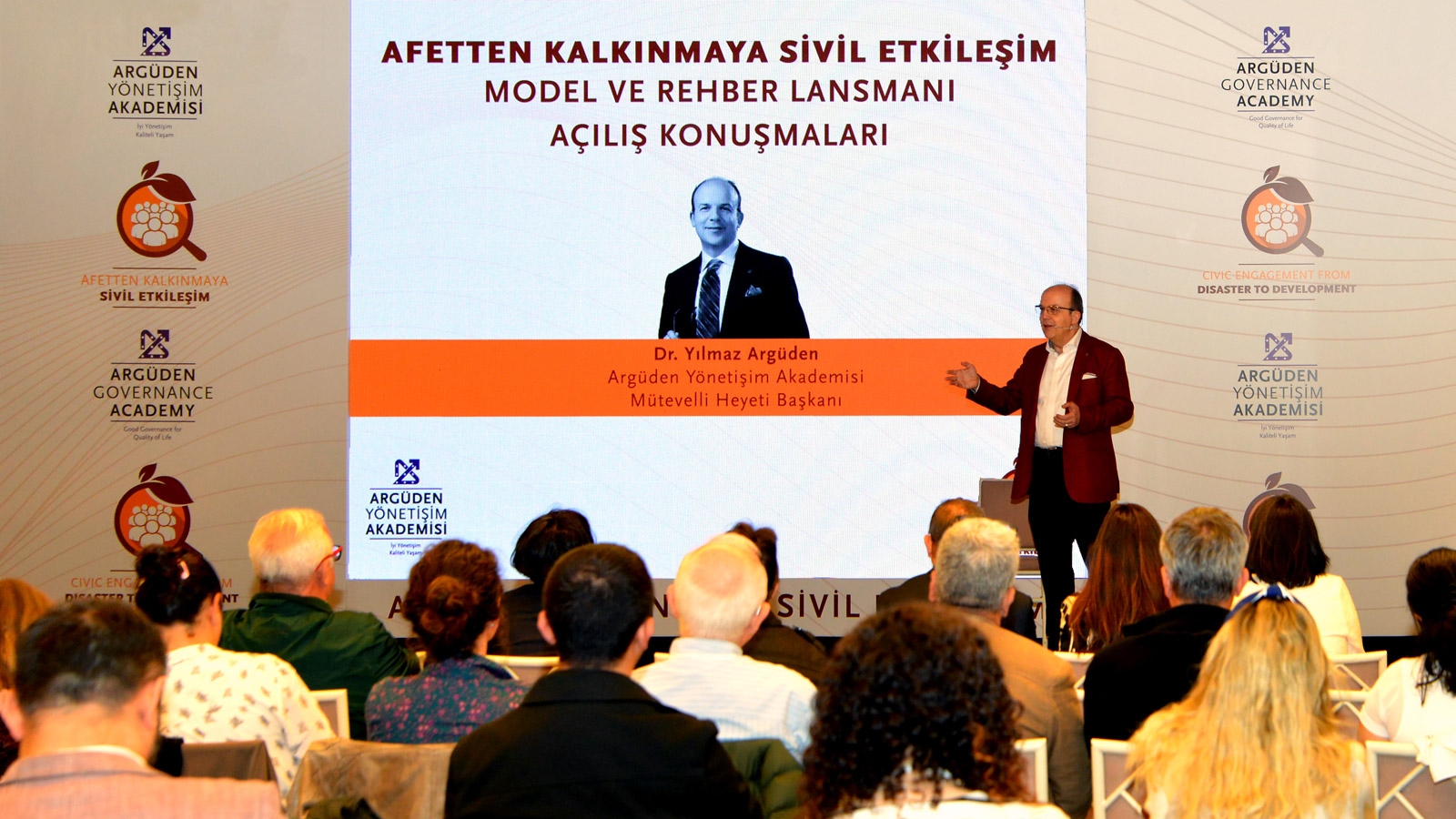
Dr. Argüden also stated that “Natural disasters are inevitable, but disaster preparedness is an investment in a resilient future. Mental preparation, education, and preparatory exercises save lives. Preparing for the future enhances the speed and quality of reconstruction efforts. Fostering an inclusive and meaningful participation in these processes increases social trust and enhances the efficiency of resource utilization and implementation. Civil engagement empowers citizens and builds a resilient society. We aim to foster a more resilient society and liveable cities by promoting good governance and civil engagement in all pre- and post-disaster processes.”
Betül Selcen Özer, General Manager of the Support Foundation for Civil Society, the cooperation partner of the Kahramanmaraş Earthquake Direct Support Fund, stated that: “I believe this Model will make an important space for civil society communication, especially in the field of reconstruction efforts. What makes this project special for us is that its focus on good governance, active citizen participation by involving the public sector, NGOs and the private sector, and its data-driven approach.”
Argüden Governance Academy “Civil Engagement from Disaster to Development” Project Coordinator Dr. İnan İzci and Project Research Coordinator Dr. Erkin Erimez from the project team emphasized in their presentations how the model can be used as an evaluation tool. Furthermore, Dr. İzci stated that “When the Model is used, it will help the to achieve more holistic, inclusive, and effective results for the improvement and reconstruction efforts. Therefore, it is a priority to support the public, private and civil society sectors to act in unity and trust.” Explaining how the functioning and scoring system of the Model works, Dr Erimez underlined the Model’s emphasis on transparency, accountability, as the most important features. Inclusive stakeholder engagement and effective resource utilization are the keys to build a resilient and sustainable future.
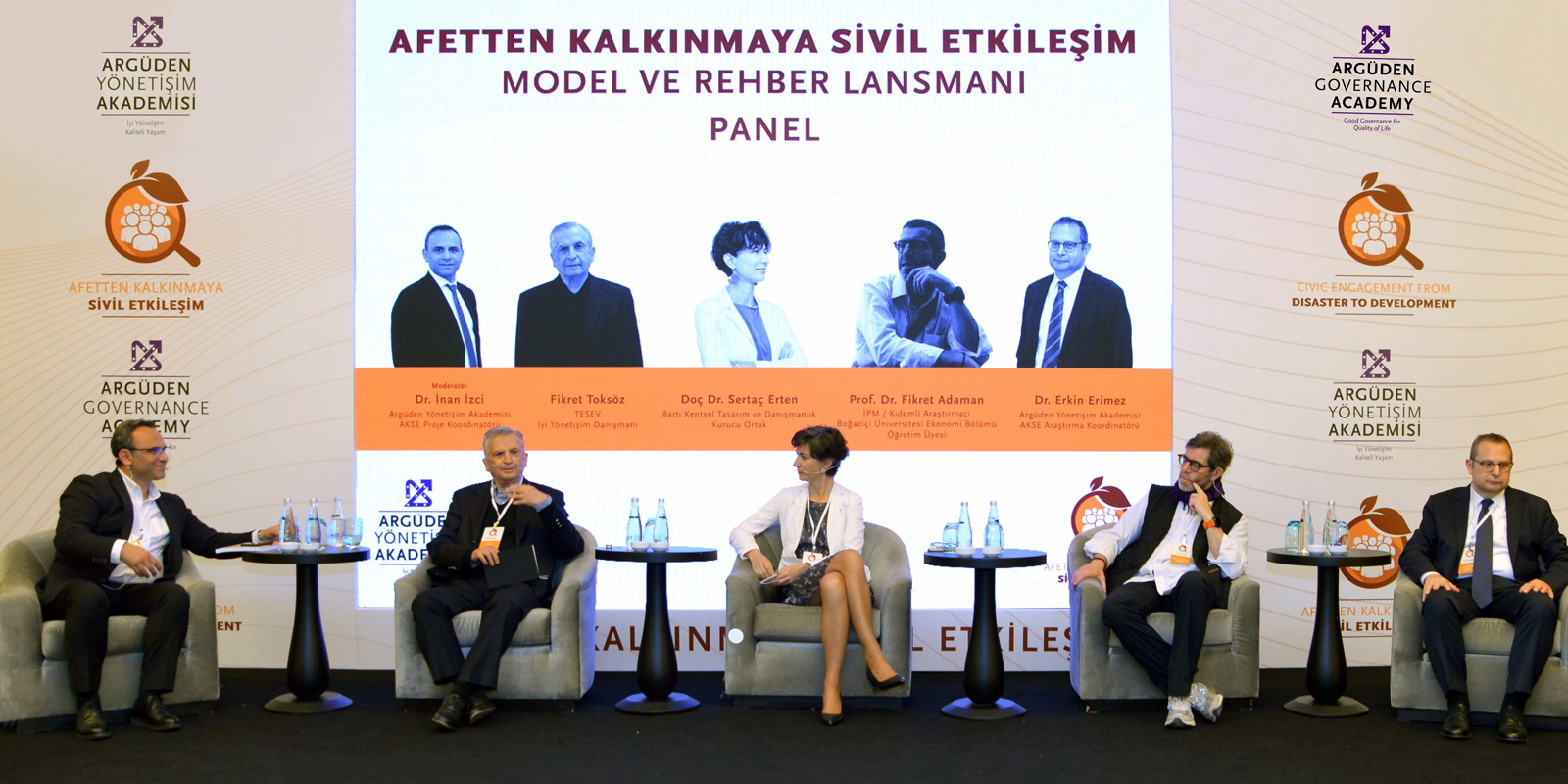
Following the introduction of the Model, Senior Research Fellow at Istanbul Policy Centre and Lecturer at Boğaziçi University, Department of Economics Prof. Dr. Fikret Adaman, 8artı Urban Design and Consultancy Co-Founder Prof. Dr. Sertaç Erten, TESEV Good Governance Consultant Fikret Toksöz and Dr. Erkin Erimez took part as speakers in the panel moderated by Dr. İnan İzci.














